Photo Essay By Kevin M. Hymel
Every American soldier who jumped into North Africa, Europe, the Philippines, and other combat zones around the globe during World War II had to first learn his trade at Fort Benning, Georgia. For one month, soldiers went through tough physical training as well as classes and demonstrations on how to hurl themselves out of perfectly good airplanes.
They started off learning to fold and pack parachutes. Then, it was a week of jumping into piles of sawdust from mock doors four feet off the ground. Halfway through the training, the troopers jumped out of 30- and 250-foot towers. Attached to parachute harnesses to cushion their falls, they learned the stomach churning experience of falling helplessly until the wires slowed their speed. They also learned how to collapse their chutes while fighting against a wind machine.
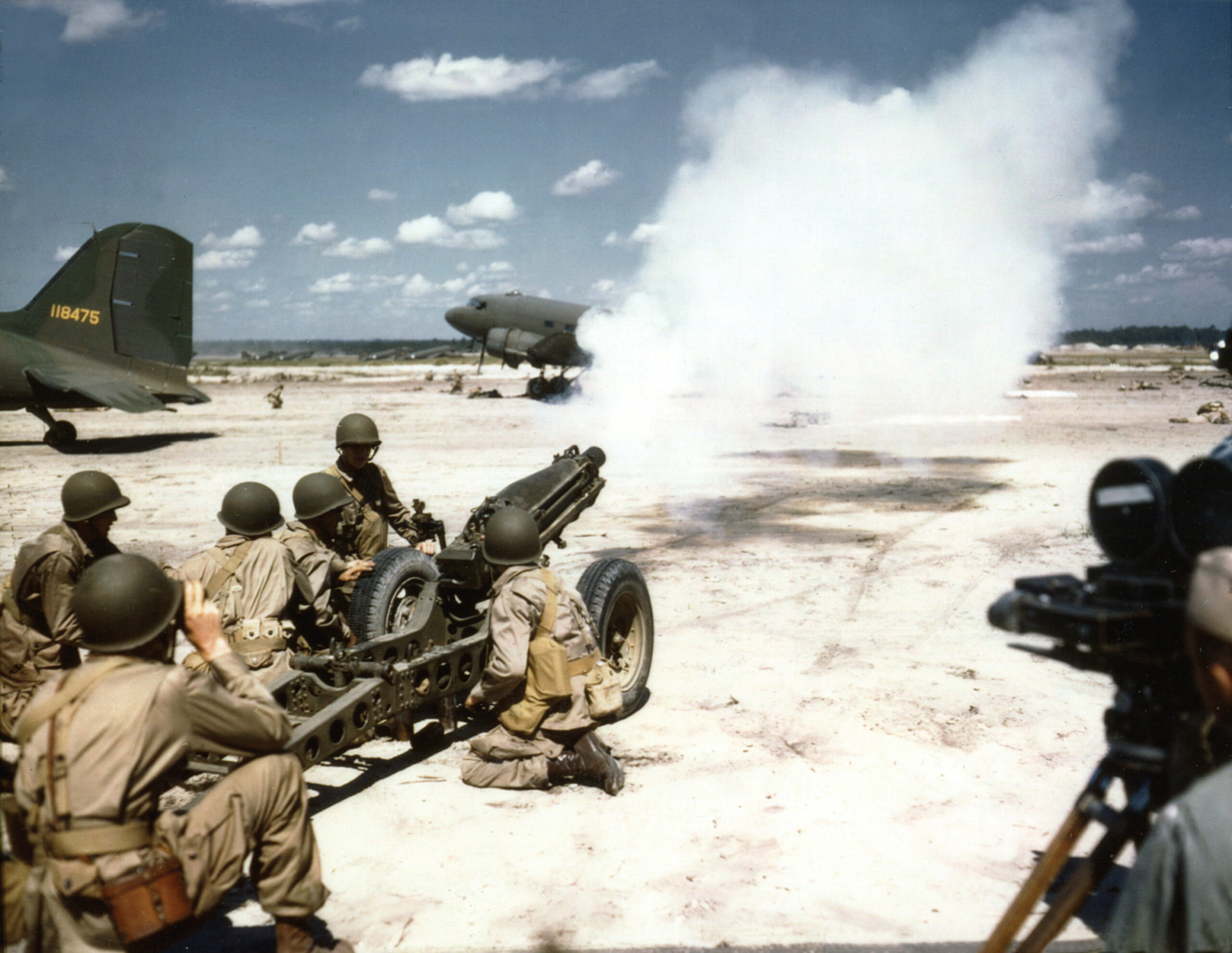
To earn their jump wings, the paratroopers had to make five jumps out of a Douglas C-47 cargo plane. They climbed aboard, 25 men to a plane, and waited anxiously to get airborne. The jumpmaster ordered, “Stand up and hook up!” For each man’s parachute there was a line attached to a metal clip that the men would attach to another line strung up within the length of the cabin. Once the men jumped out of the plane, their line would pull against the cabin’s line and release their parachutes.
From that point on, it was all physics. The unfurling parachute would catch the plane’s prop blast and inflate. The fall would be jolted to what felt like a standstill, and the men would begin swaying to and fro until they touched down.
Those lucky few who completed the training were presented with a certificate recognizing their status as qualified parachutists and the coveted Airborne wings to wear on their chest. Now, they were ready to jump behind enemy lines anywhere around the world.
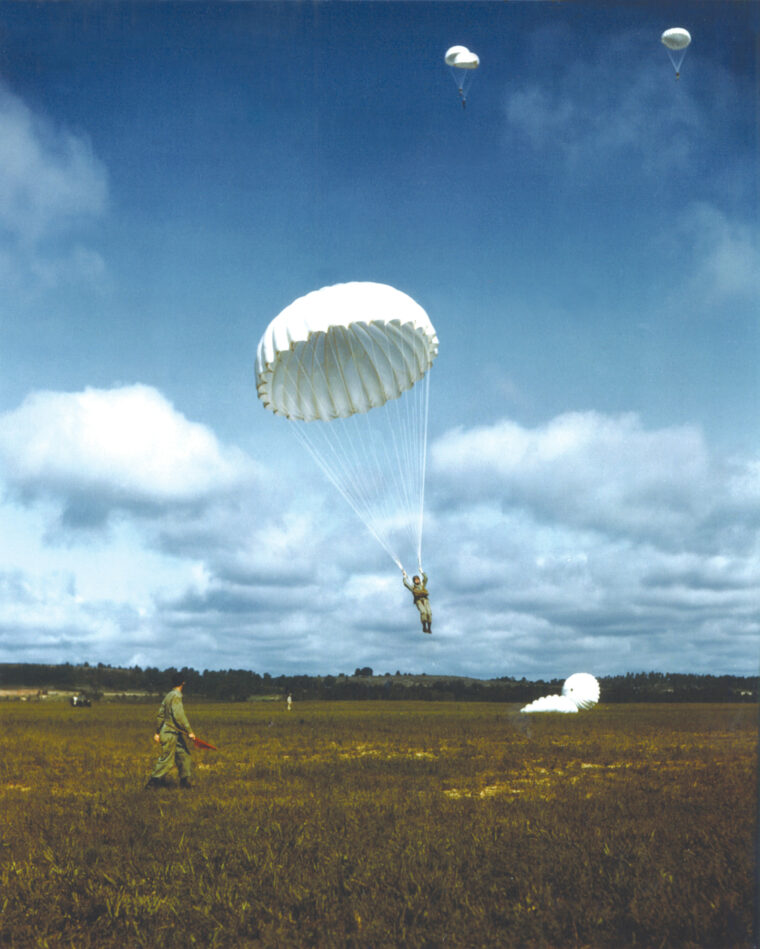
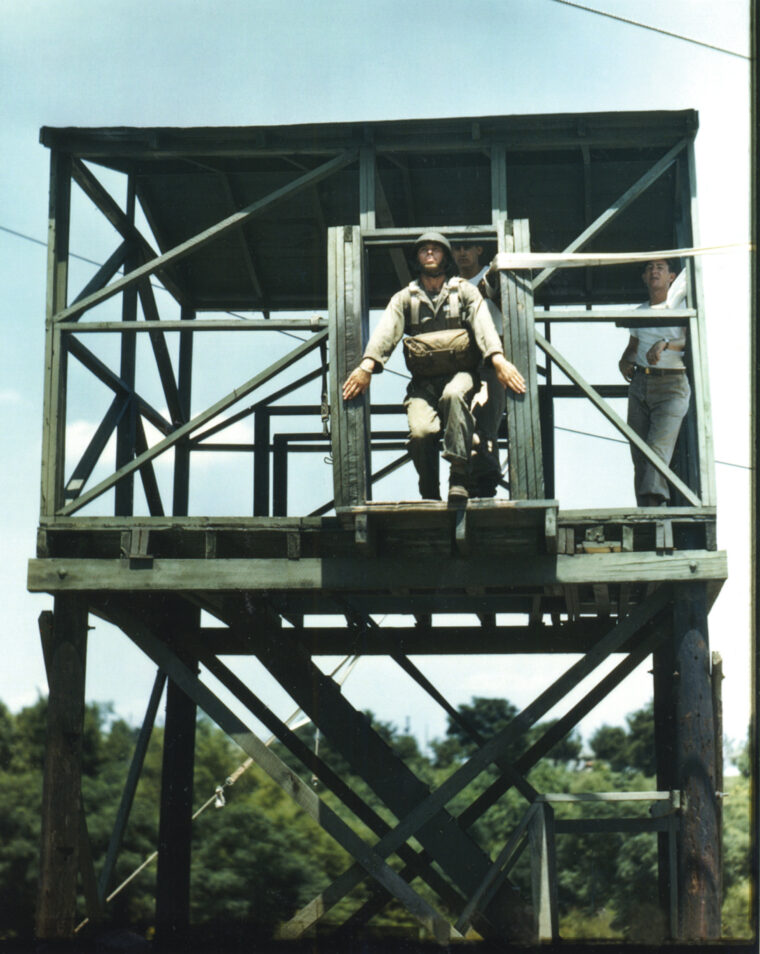
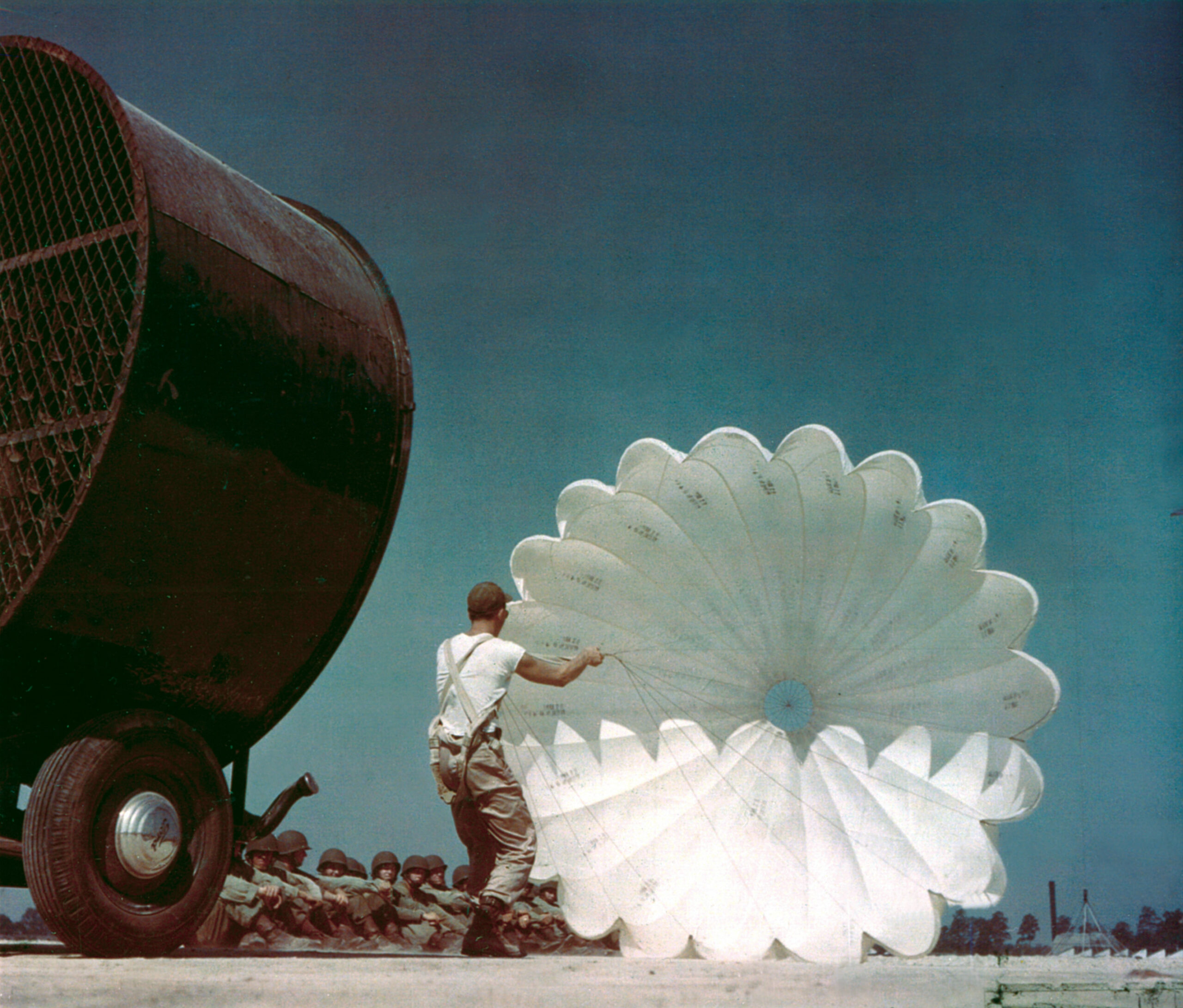
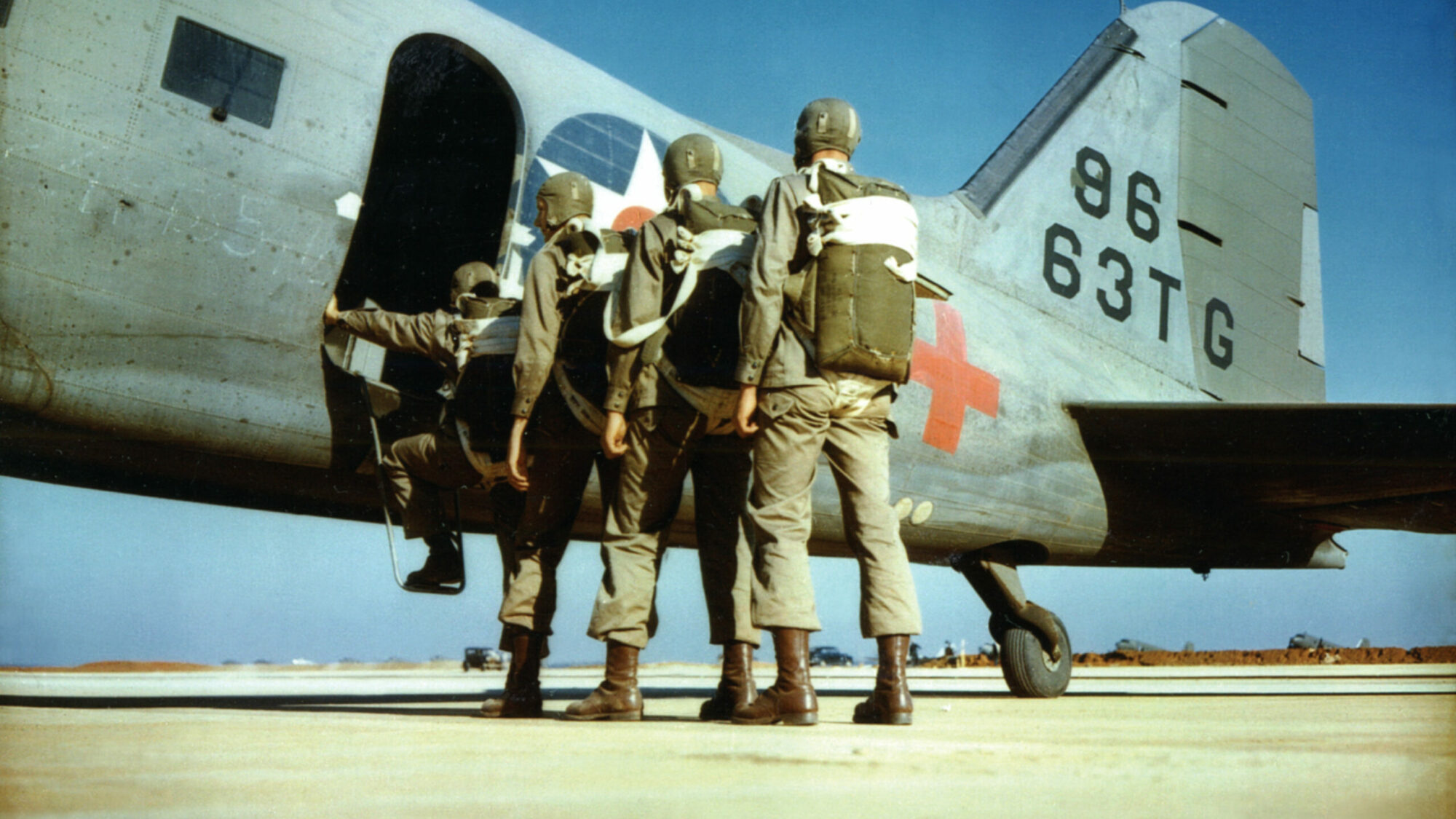
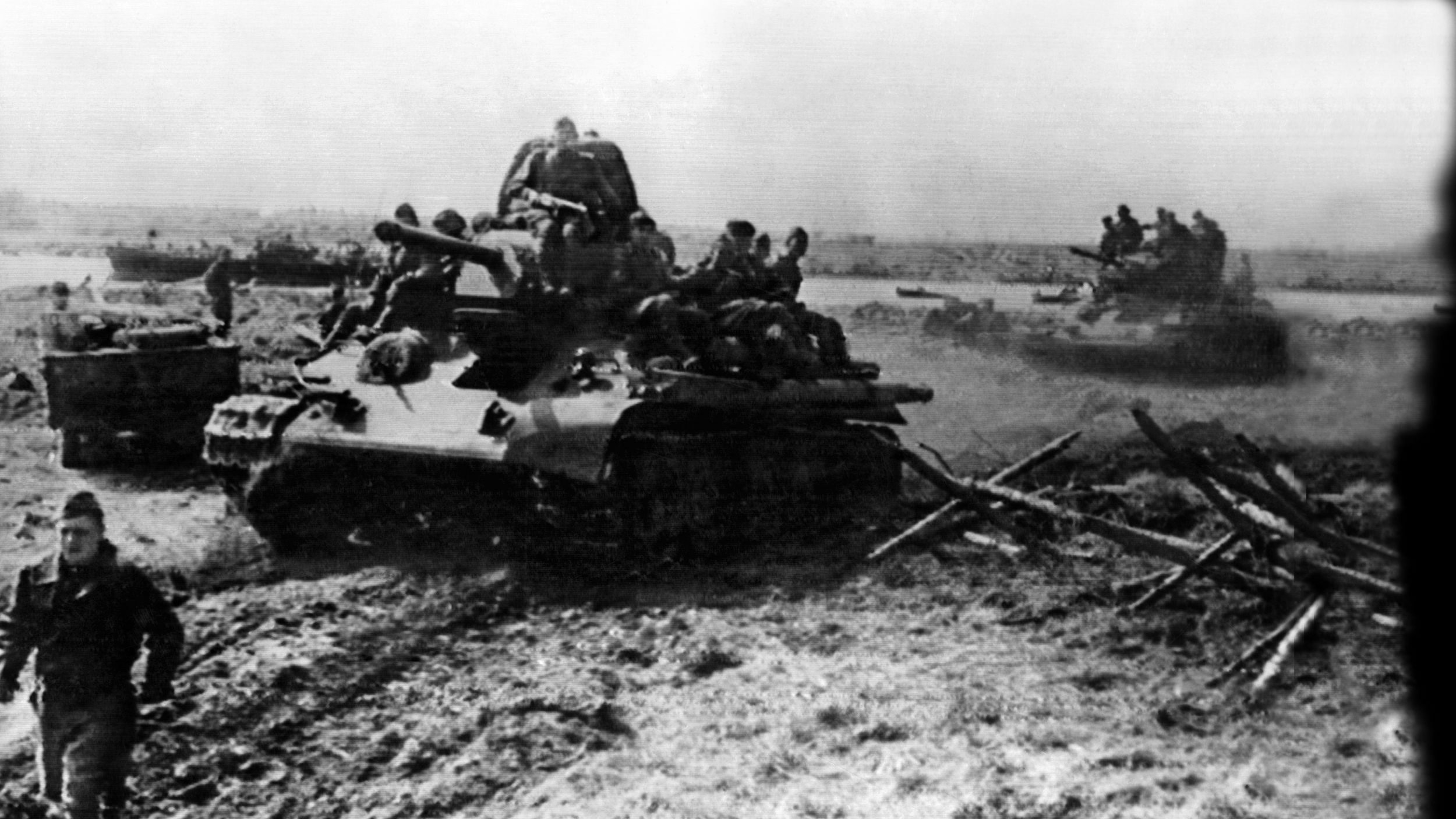
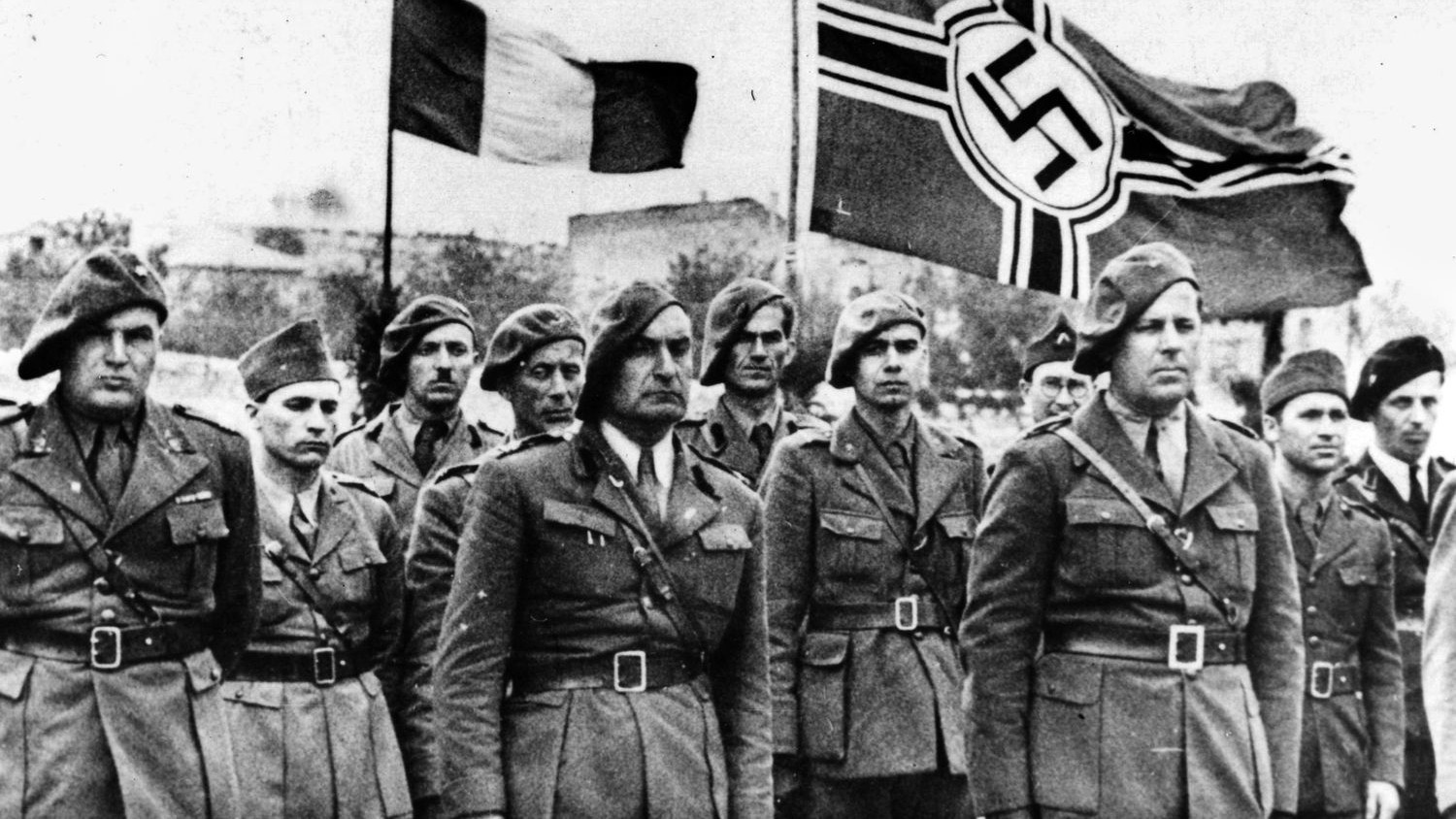
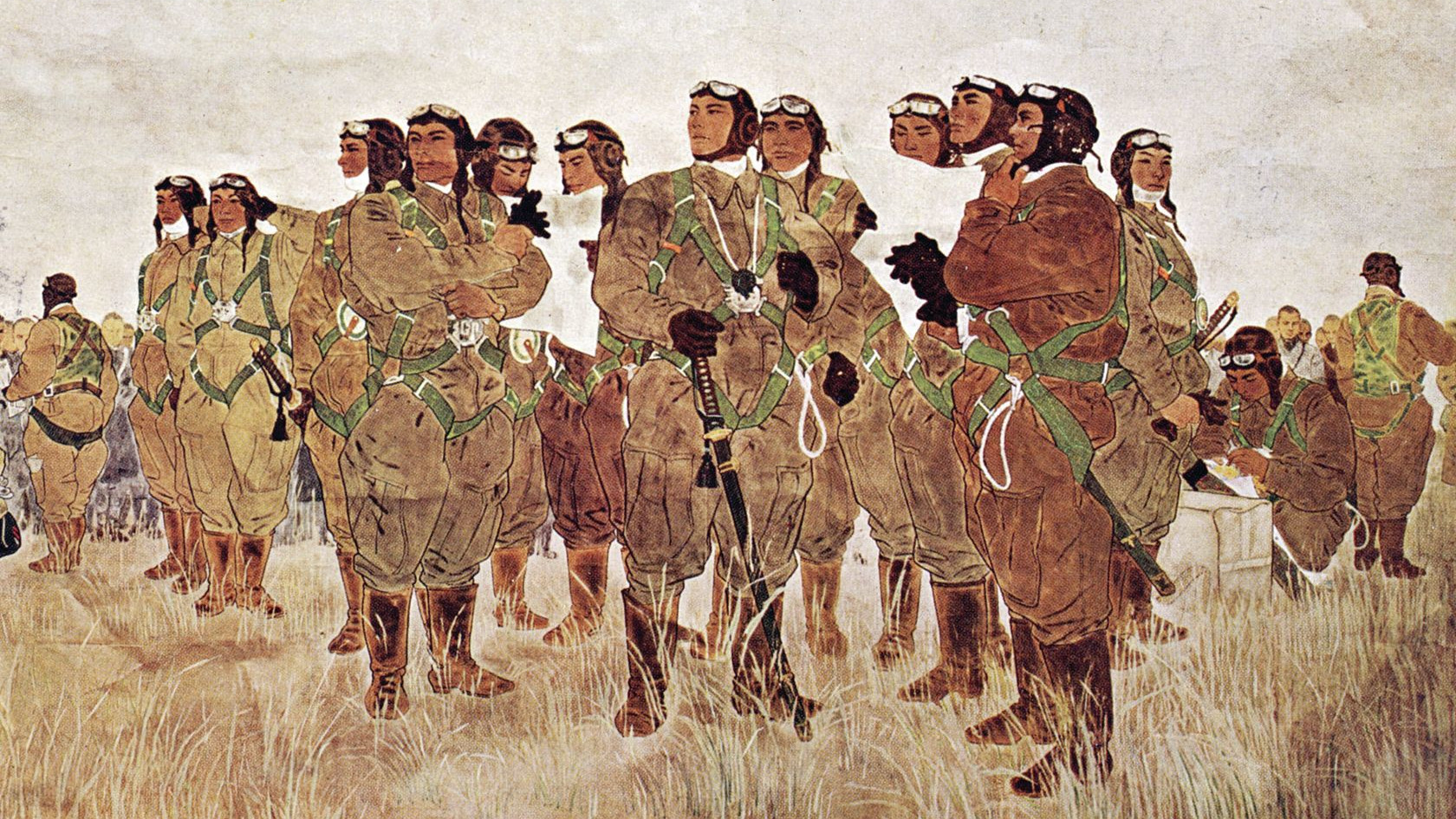
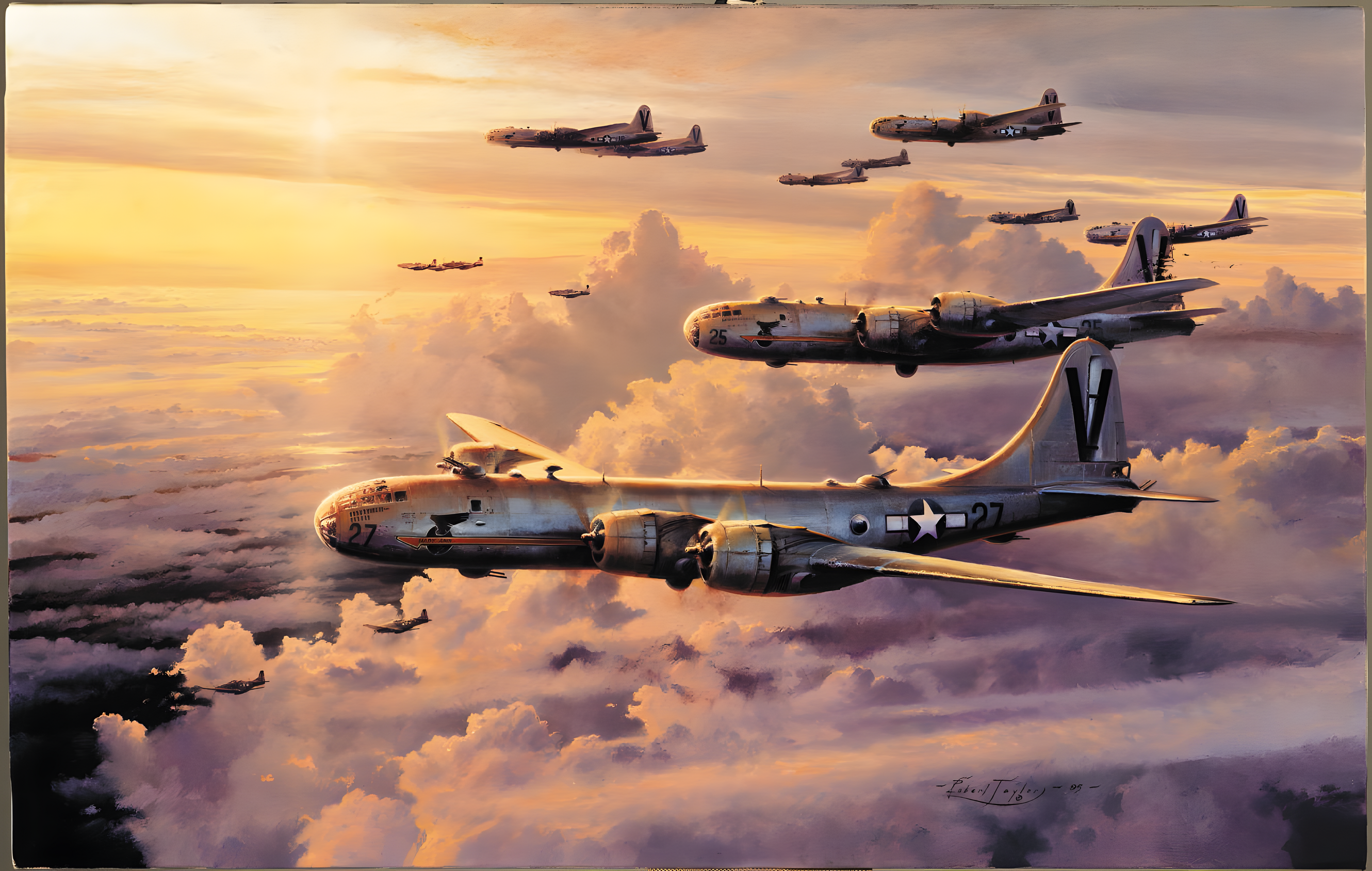
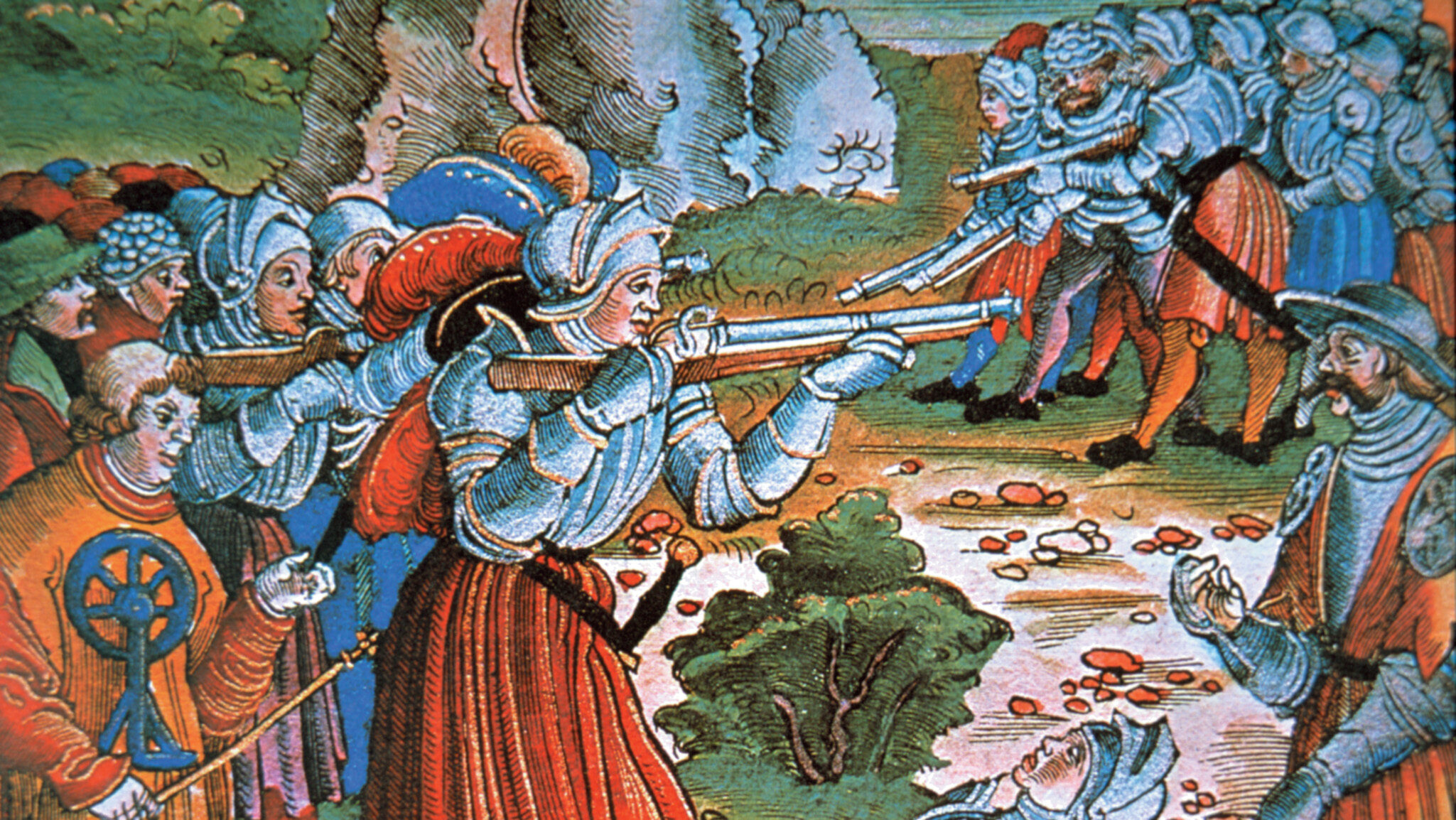
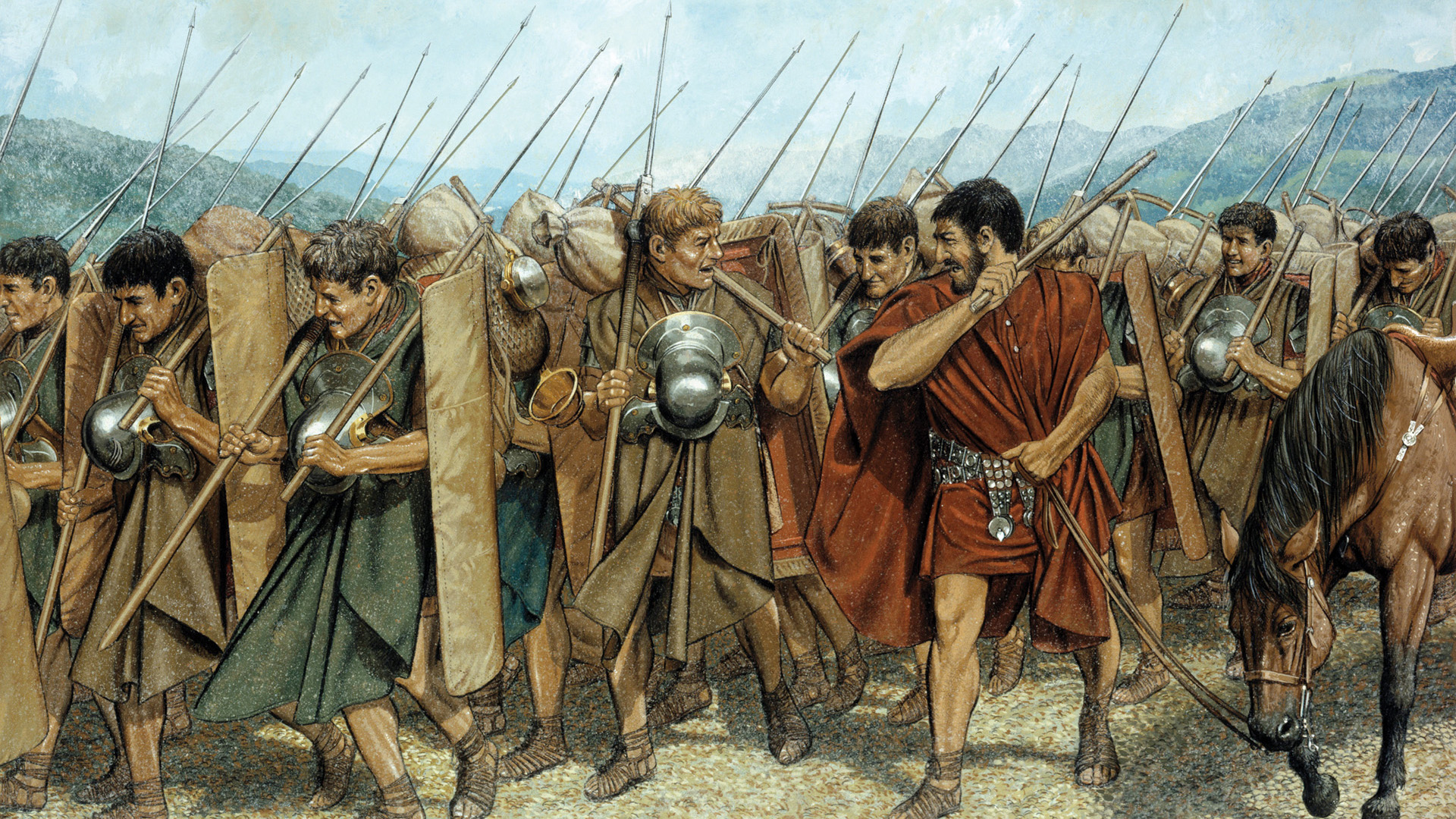
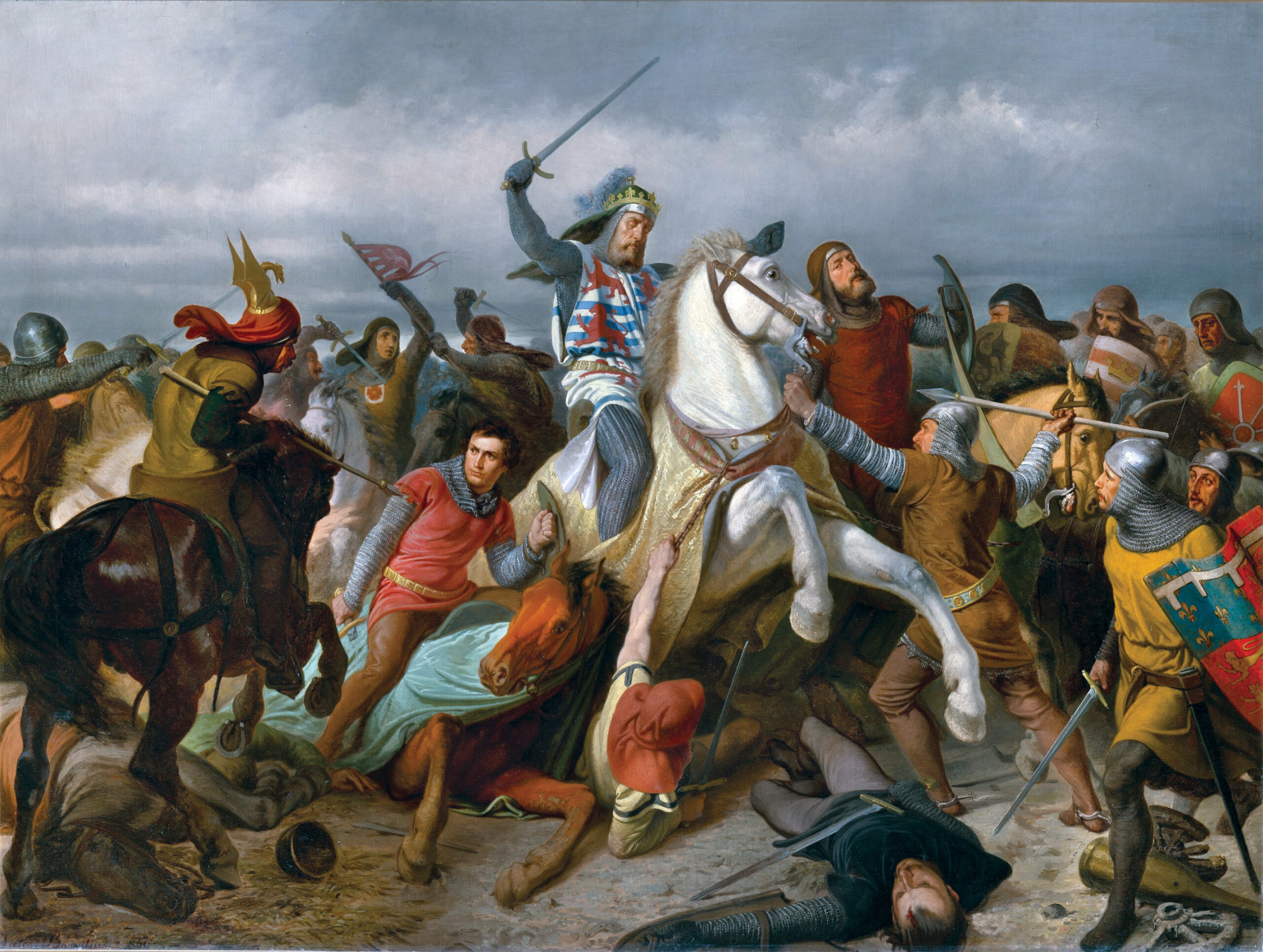
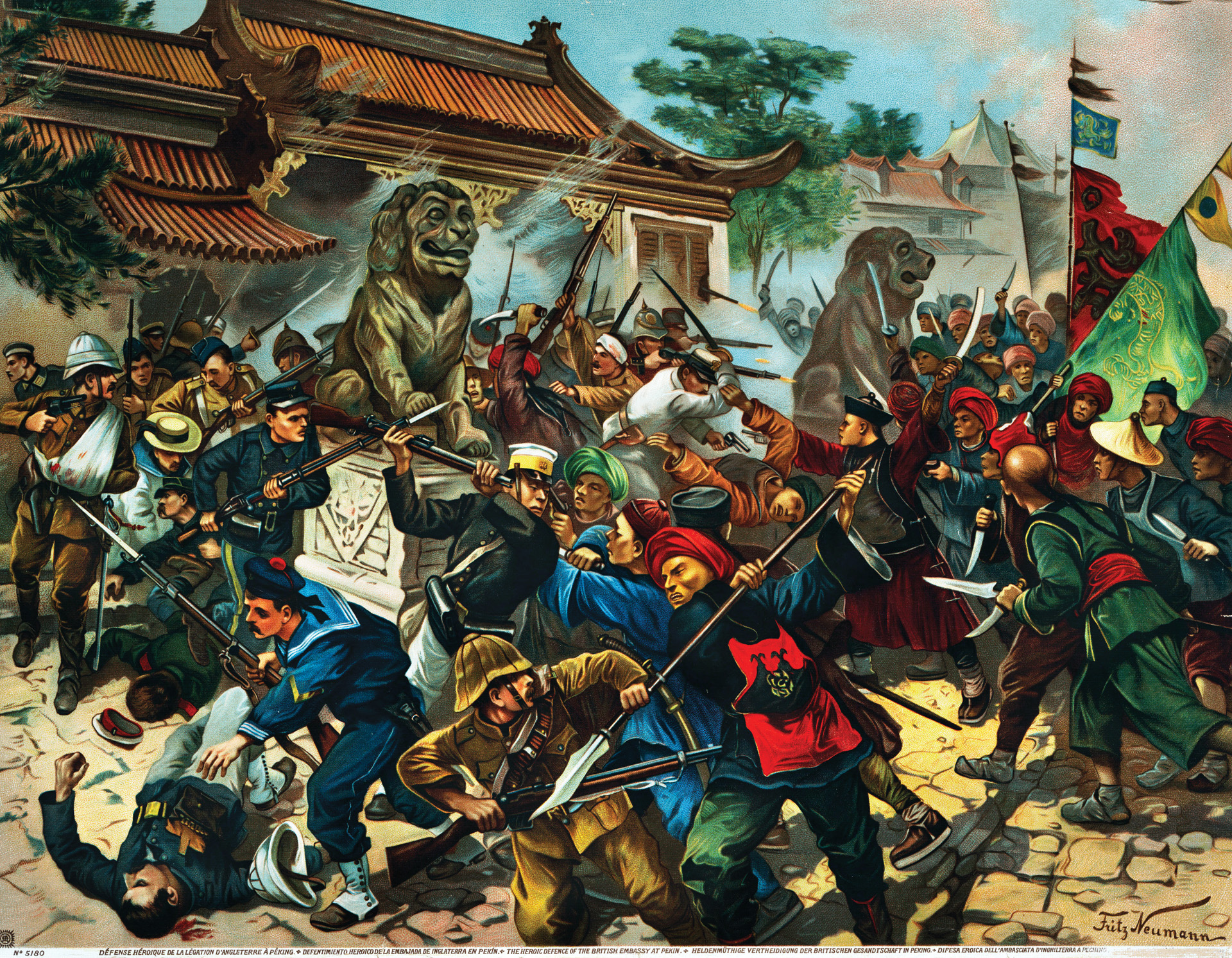
In case no one else has mentioned this, the artillery piece is a 75mm pack howitzer, not 105mm.